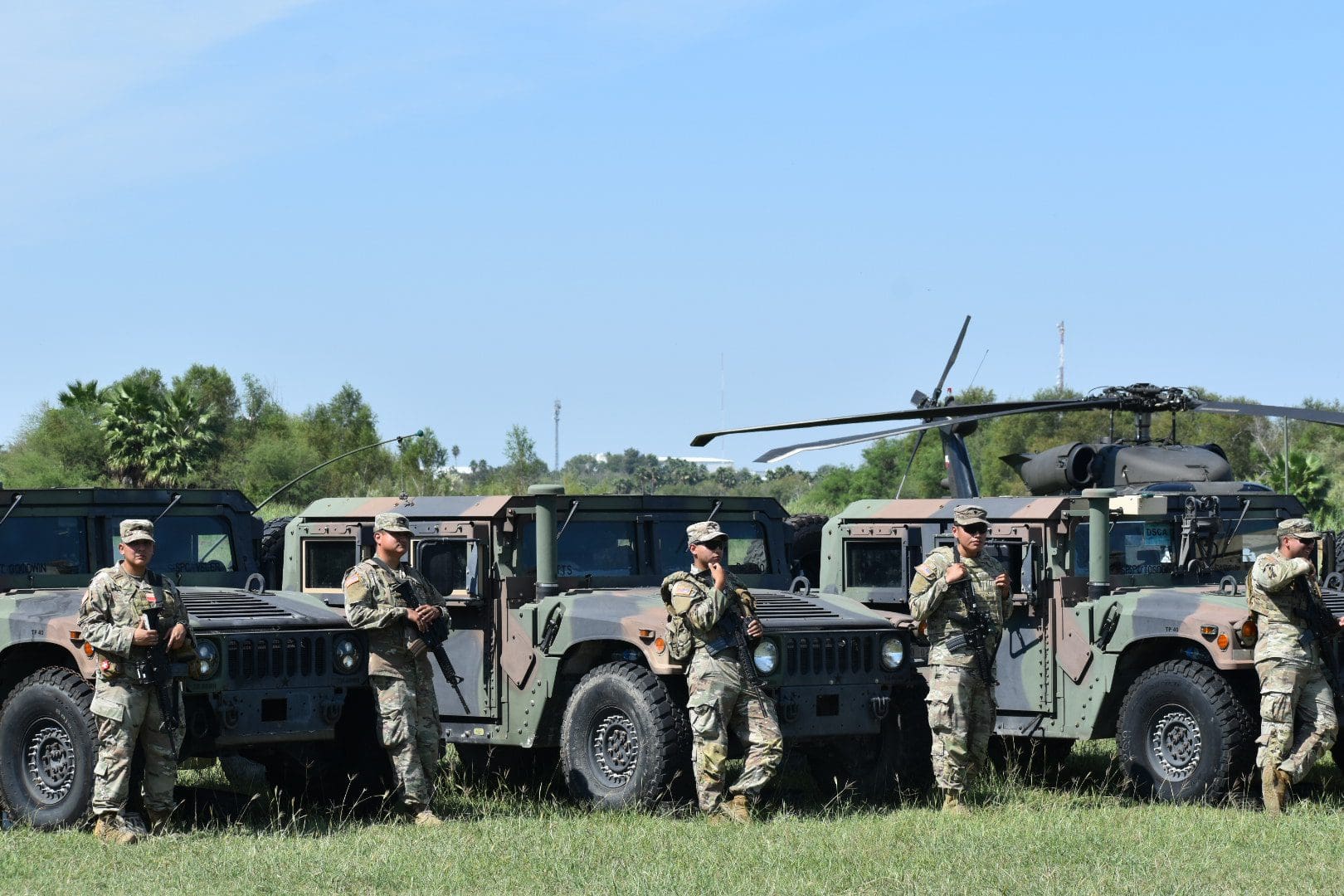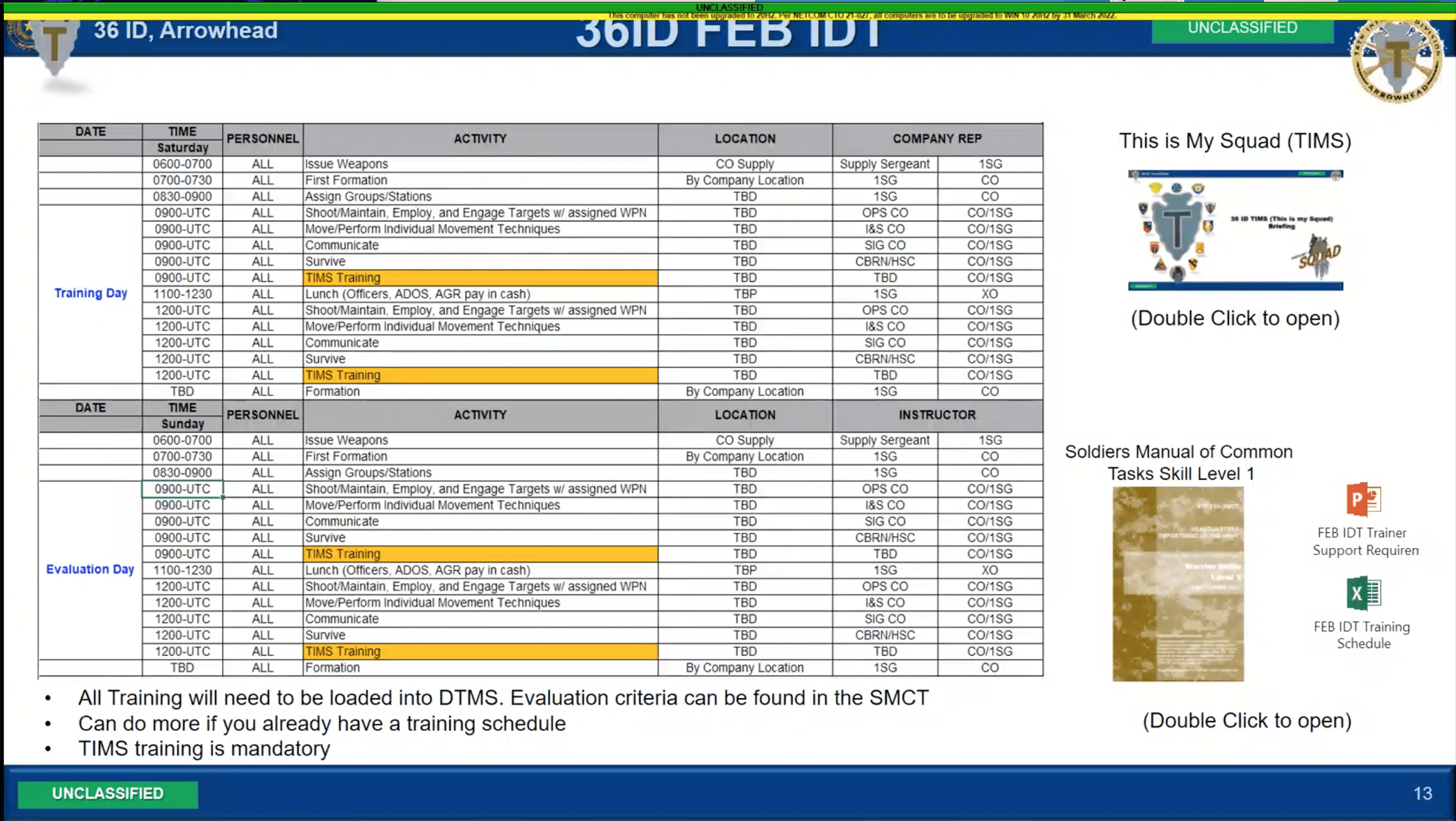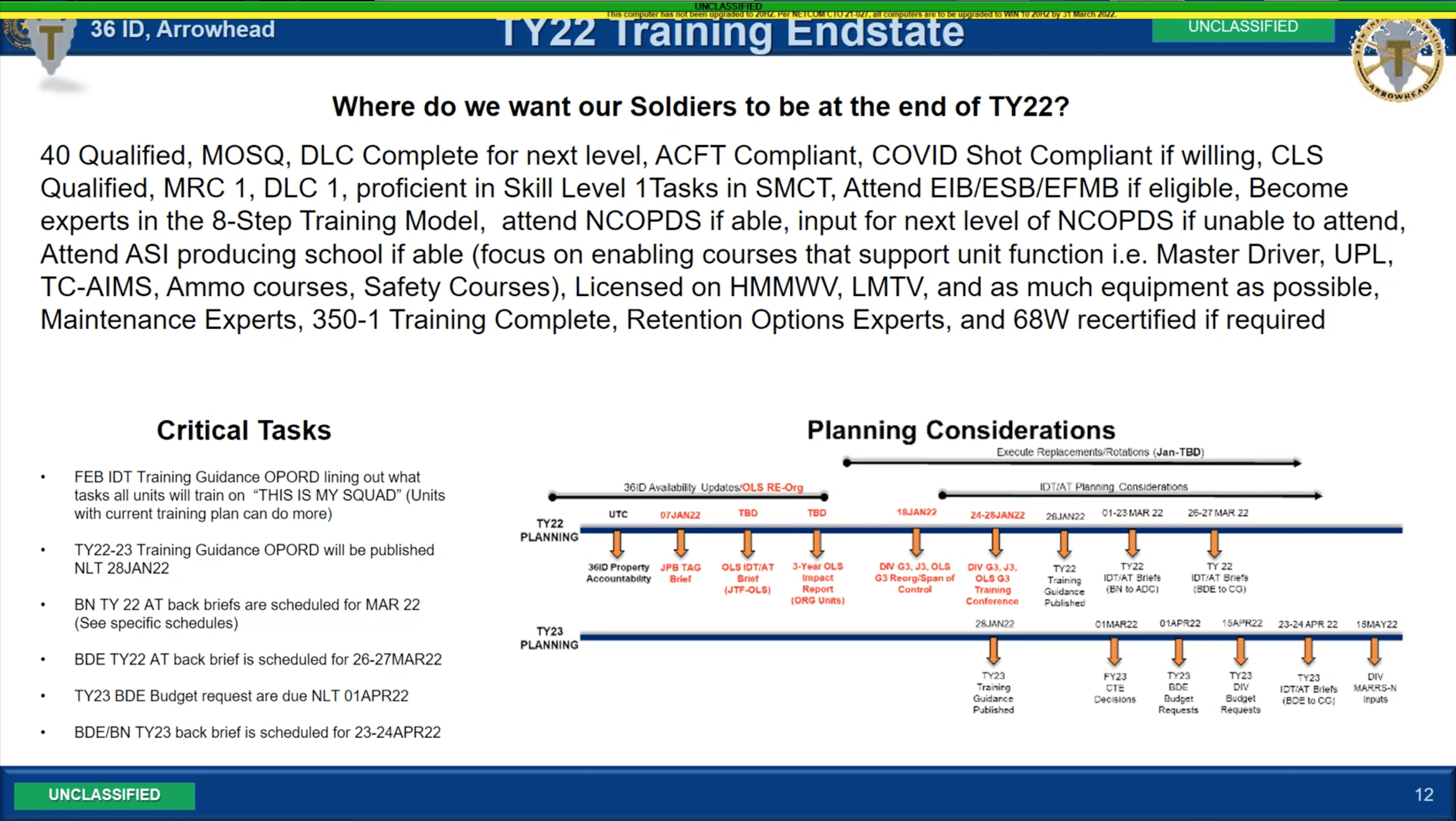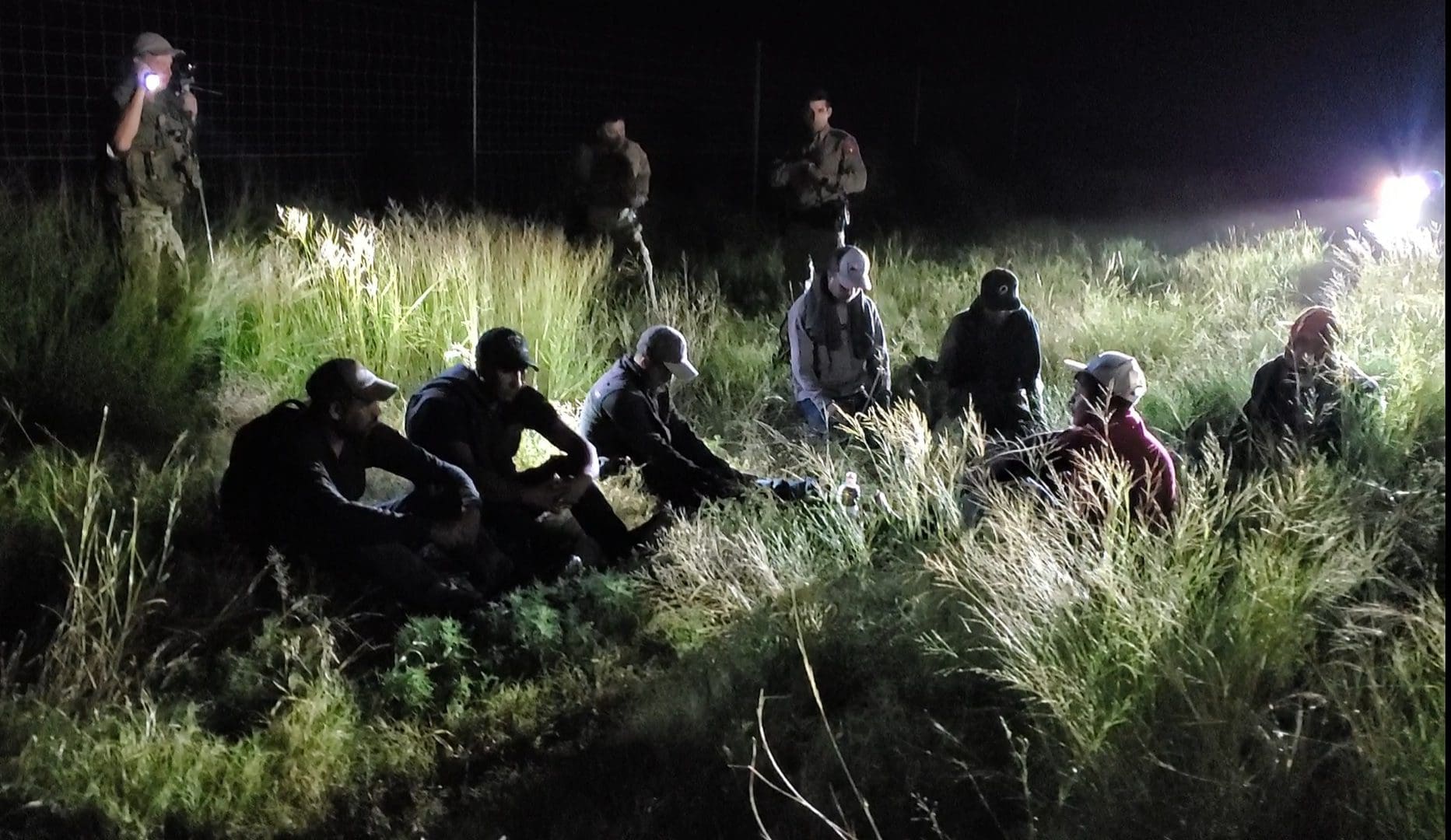On February 5, a soldier deployed to Operation Lone Star walked into an aid station seeking mental healthcare. The soldier said that for the last couple of days, he’d been staring down the barrel of his gun, contemplating suicide.
Another report outlines how a female fuel journeyman stationed in San Antonio tried to kill herself, twice, over pay issues.
There’s more. On January 19, in Del Rio, a soldier pregnant with twins suffered a miscarriage, losing one of her babies.
These troubling accounts are included in “Serious Incident Reports” of OLS soldiers obtained by Texas Scorecard. Gov. Greg Abbott’s border operation has been widely criticized as poorly planned “political theater,” leading to an attempt to unionize Texas National Guardsmen.
Texas Scorecard is withholding the actual SIRs to protect the identities of the individual soldiers.
Incident Reports
In February, an OLS soldier was killed by an accidental weapon discharge, an unfortunate event that received widespread coverage.
While deaths from accidental discharges aren’t normal, repeated weapons accidents are seen in a review of the SIRs, including accounts of a discharge at a firing range in Zapata County and a hotel room in Laredo.
Such accidents could be the result of a lack of training.
Jim Betts, a U.S. Navy retiree whose son is deployed in OLS, told Texas Scorecard in early February that there is no routine training in “firearms proficiency,” “ground tactics” or “arrest procedures.” Betts last spoke with his son in January. An internal January 18 meeting of the 36th Infantry Division appears to validate Betts’ account.
In a recording of that meeting, on which Texas Scorecard previously reported, Maj. Gen. Charles Aris addressed the issue of training, almost a year after Abbott launched Operation Lone Star.
“Each soldier will get a four-day pass each month to go home. … Starting in February, if it hasn’t already started, there’s also going to be four days that are allocated to train.”
Weapons usage was included in the training requirements.
“The Texas Military Department takes safety seriously and works to ensure that all service members are properly trained for the missions they are tasked with,” Col. Rita Holton, Texas Military Department’s director of communications, told Texas Scorecard. “In regards to firearms, annual qualification on assigned weapons is a military requirement. The task force schedules range-time to ensure service members needing qualification have an opportunity to do so.”
Accidents aside, the SIRs also contain criminal complaints, reports of substance abuse, and mental health episodes. Some reveal a lack of self-control among soldiers, while others appear to validate reported strains between OLS soldiers, law enforcement, and Border Patrol.
One report details a bar fight in Del Rio between a soldier and a Border Patrol agent over a woman. The fight escalated and authorities were called after the soldier reportedly retrieved his firearm, came back, then pointed the firearm at the agent and five others.
In Eagle Pass, a soldier was arrested for cutting off a cop and being combative after pulling over.
In addition to these conflicts, Betts said things aren’t rosy between state and federal law enforcement during OLS. “Right now, the Texas Rangers and Border Patrol are in a spat,” Betts said. “My son has said, ‘We’ve had to release numerous groups [of illegal immigrants] because we can’t get anyone to come out to pick up the folks that we’ve got detained.’” Betts said his son didn’t know the reason for this conflict.
During the January 12 meeting of the 36th Infantry Division, a soldier asked Maj. Gen. Aris about a conflict between Border Patrol and the Texas National Guard (TNG). “What I’m hearing is more or less that … the [Dept. of Homeland Security] agencies, such as the Border Patrol … they more or less don’t want us there,” the soldier said.
Aris demurred. “Everyone wants us down there, except for … perhaps the federal government at the Washington level,” he replied.
Lawlessness & Self-harm
Accidents involving weapons is one thing, but the SIRs also detail an apparent lack of discipline and multiple soldiers struggling with suicide.
One soldier was arrested in Hidalgo County for driving while intoxicated on January 7, 2022. A similar DWI arrest occurred in Laredo that same day after a “vehicular accident.”
These aren’t the only incidents. A new unique source within TNG recently told Texas Scorecard of “inside threats” to OLS soldiers. This source recalled how those who work with logistics had been “arrested for bringing in a pound of weed … and selling it to the soldiers.”
These and other incidents could be the result of poor morale. Betts told us that from what he heard in TNG, morale was “not good”; in his experience, that leads to incidents similar to what we found in the SIRs.
“Accidents start happening. Order and discipline starts falling apart. [There are] increased fights. Disorderly conduct. Disrespect towards seniors. It’s an entire laundry list,” he said. “It can turn into a wildfire quickly.”
Multiple SIRs also relay incidents of soldiers harming themselves, considering suicide, and some attempting it.
On December 27 in Del Rio, a drunk private talked about wanting to shoot himself and others.
On December 28, in the border city of Pharr, a sergeant attempted suicide by slitting his wrists. Thankfully, his battle buddies helped save his life.
Seven days earlier, a soldier, who had his own gun in his room, said he was “going to hurt [himself] to get off this mission.”
That same day in San Antonio, a female staff sergeant “ingested a large quantity of medication with the intent to die.” She, like other OLS soldiers, had not been paid on time. Thankfully, she survived the attempt.
Betts’ son also has suffered paycheck hardships, reportedly missing “several” paychecks, and has relied on savings to pay bills. Last Betts heard, his son has since been getting paid, but he doesn’t know if the pay is “accurate” because of the lack of pay stubs.
“They cannot delay paying soldiers. If they are delayed, they are required to issue some sort of letter to the soldier, that they can make copies of, and provide to anyone that they owe money to,” Betts said. “[My son said] they’re not doing any of that.”
Suicide incidents continued into this year.
On January 18, a female medic in Del Rio struggled with suicidal thoughts. Another, in Pharr, struggled with such thoughts, and later admitted to drinking alcohol and taking medication. She was rushed to the hospital.
On January 27, a soldier who was struggling financially got drunk, put a bullet in his gun, and “was going to kill himself,” according to the report. His comrades intervened.
Not all suicide attempts were stopped. In mid-December 2021, a first lieutenant assigned to OLS killed himself.
“There are increasing numbers of suicides that are going on,” Betts told Texas Scorecard. “This length of time that these guys are on deployment, it is affecting them because they have no outlet. There’s nothing on off duty hours for them to be able to unwind, like barbecues or volleyball games, basketball games, there’s nothing unless they do it themselves. There is nothing that is command-sponsored.”
Living Conditions
Betts believes the critical failure is that those enlisted in the E-9 pay grade (who are responsible for caring for soldiers’ welfare) aren’t doing their job. “[The E-9] is responsible for the care and feeding of all enlisted personnel, including junior officers,” Betts said. “The E-9 answers only to the commanding officer.”
He should know, as he once was an E-9 himself. When asked how he felt about what he was hearing, Betts didn’t mince words.
We’re not in battle. We’re not in Afghanistan. We’re not in Iraq. … We’re on our own turf. There’s no excuse for us to be treating these soldiers the way they’re being treated.
Soldiers have also had to deal with poor living conditions. Betts said after his son’s group was trained and deputized, he heard about the hotel they were sent to live in during deployment. “They’ve got dead rodents in the room, they’ve got dead cockroaches everywhere, and there are needles in the room, and drug paraphernalia,” he said. His son’s group was told to clean it themselves.
“[Now] they are living in modified 18-wheeler trailers, and they’re stacked three and four high.” Betts said his son’s group was “real frustrated.”
“How come this is so difficult to come up with housing for our soldiers?” Betts asked. “You knew they were coming. You’re telling me that no one has done any pre-planning, any logistics on trying to set up proper housing?”
While the foot soldiers have to live in squalor, commanders are apparently living well. “[They’re] living either in hotels, or condos, or random houses,” Betts said. “None of them from the command staff have come down to even physically check on [the soldiers].”
The Texas Military Department (TMD) did not provide a response to our inquiry about OLS soldiers’ living conditions, and where command staff live, by publication.
Retired Sgt. Maj. Jason Featherston replied to Texas Scorecard on February 28 about commanders checking on soldiers. “Some visits have been made to the border by the command staff,” he said.
TMD recently launched what appears to be a public relations campaign showing off dorms at Camp Walker in Laredo. On February 8, TMD appealed to Attorney General Ken Paxton an open records request from Texas Scorecard to substantiate recent public relations hires.
Others have turned to Betts for help. “I’m talking to platoon sergeants, people that I’ve never known in my life, and yet they’re calling me, asking for advice on ‘how … we handle this situation.’”
Betts also mentioned supply issues, such as soldiers not having enough night goggles or radios. Without radios, they have had to rely on mobile phones. “Hopefully, your cell phone will have service.”
A source in the TNG also told us in February that not all OLS soldiers have proper protection. “We have already soldiers now beginning this mission that don’t have plates, they don’t have plate carriers,” this source said. “[If they] get shot, they’re gonna get killed.”
“Why are you going to send us on a border mission against the cartel and immigrants and not give us protection?” The source also told us that his area wouldn’t be issued weapons until the end of February. “How does it take that long for weapons to be issued?”
Texas Scorecard asked TMD about the supply situation. “The Texas Military Department provides appropriate gear to all personnel who need it to carry out their duties. All members who need additional equipment are encouraged to contact their S4 for issuance procedures,” replied Col. Holton.
Pointing out another dereliction of duty, Betts said there have been issues with feeding soldiers properly. When a sergeant tried to put together meals for his team in the mobile kitchen, he got in trouble. A day later, they were given Spam to eat. “You’re a military organization, and you’re saying you don’t even have enough MREs (Made Ready to Eat military rations) to hand out every day for all your patrols that you’ve got going 24/7?”
Soldiers’ medical needs also appear to be lacking quality attention, based on what Betts’ son experienced in November. “He came down with strep. He called me, and I told him, ‘You need to go to sick call.’ He says, ‘We don’t have sick call.’” Betts later discovered a larger problem.
“Amongst the four commands—North, Central, South, and East—they have not a single medical command,” he said, adding the staff they do have “can’t do anything.” “They can’t dispense medication, and honestly, they don’t even have the training to do that.”
Texas Scorecard asked TMD about the medical command for OLS. TMD asked for clarification, which we provided. No response was received before publication.
Betts told his son to go to the nearest clinic, only for his son to discover they don’t accept military medical insurance. “He ended up having to go to the local hospital to be treated for strep. I’m like, this is insane.”
It also raises questions about whether there’s enough military medical infrastructure in place to tend to soldiers wounded in a fire fight with the Mexican cartels. “These guys, they’re doing patrols, they’re doing a minimum 12-hour patrol on foot or in Humvees along the border, [and] they’re being shot at,” Betts said. “I’m thinking, if one of you gets injured, or you run across a gaggle of coyotes that are armed … we have no triage. We have no casualty evacuation process setup. It’s stupid.”
Compared with his experience in the federal military, Betts had strong criticism for TMD. “Poor command structure, poor utilization of command, poor planning, poor implementation, lack of resources, lack of logistics and logistical support,” he said. “It’s like almost daily, everything changes. Priorities change, routines change, nothing is consistent, no advance planning.”
This is nothing new, as he relayed that his son has had five commanding officers during his five years of service in TNG. “Usually, that is only associated with commands that have bad histories.”
Lack of Leadership
“This starts at the top. If you’ve got poor execution at the top, it does nothing but trickle down,” Betts said. “If I had my way, I’d fire practically every one of them.”
We asked Betts who he thinks is at the very top. “Governor Abbott, because the No. 2 in the Texas National Guard has put out information that’s contrary to what [he] has put out.”
Betts also took Maj. Gen. Tracy Norris, Gov. Abbott’s appointee as the Texas adjutant general, to task for emailing soldiers not to talk to the press. “If you are issuing this kind of edict in an email to every Texas National Guard person, you are already admitting your failures,” he said. “The chain of command is unresponsive. Therefore, you left them with no choice but to go outside the chain of command.”
He wants to know why Norris is still the TAG.
Pointless Mission
Betts said his son has been fired at during OLS. “[My son] feels like he’s a target.” He explained why. “The rules of engagement are convoluted, very difficult, and no one is real sure where they stand on being able to return defensive fire,” he explained. “They’ve been pretty much told not to return fire.”
Texas Scorecard asked a source within TNG if they can fire when fired upon. “If I can’t identify the target that’s shooting at me, I’m not allowed to shoot. I’m allowed to get behind cover.”
We asked TMD what TNG’s Rules of Engagement are for OLS. No response was received by publication.
When asked what soldiers have been authorized to do at the border, Betts said his understanding was that they are authorized to “monitor” and “track groups” illegally crossing the border. “If they interdict any of those groups, they can detain them.” From there, they have to contact Texas state troopers; if the troopers can’t come, they then contact U.S. Border Patrol.
Texas Scorecard asked TMD about what OLS forces are authorized to do. Col. Horton asked for clarification, which we provided. No response was received by publication.
The TNG source said that soldiers “pretty much” can’t arrest illegal border crossers unless DPS is there or if you’re military police. When asked what soldiers are doing right now, our source said that in Laredo “we’re doing nothing.”
Should Texas Military Department provide further responses, Texas Scorecard will update our article.







